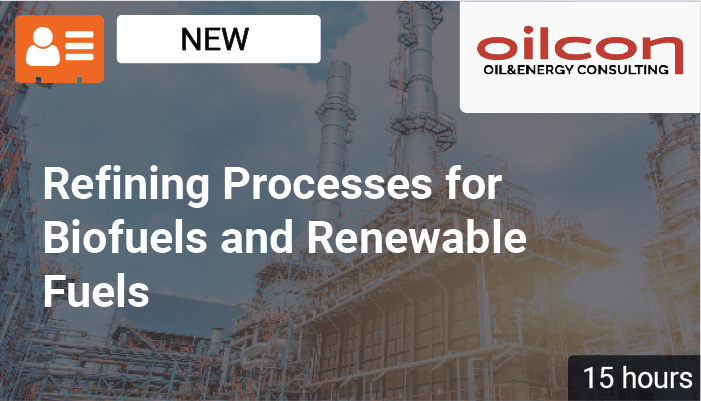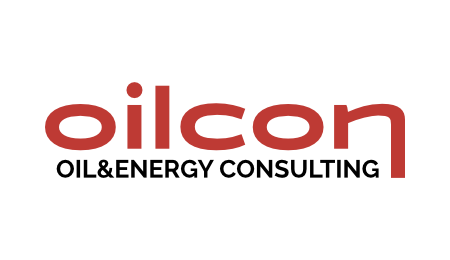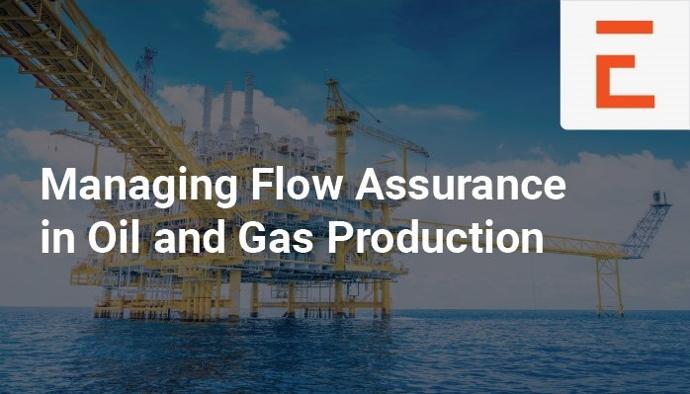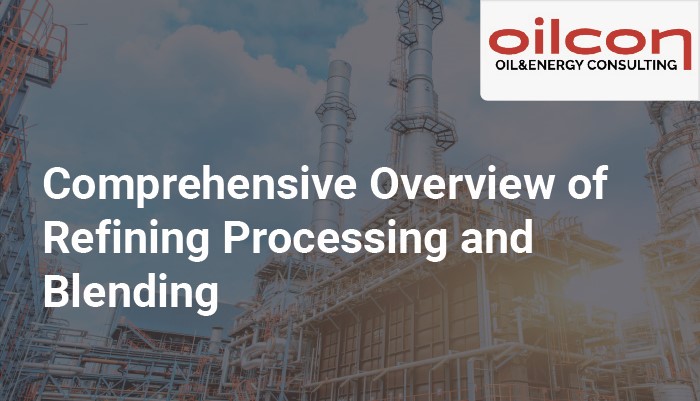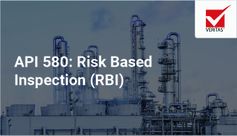Refining Processes for Biofuels and Renewable Fuels
Join the Program
Virtual or Classroom
15hr Content
Registration deadline: 15 July 2024
Custom Scheduling
Sanda Telen
INCO2003
Format:
Instructor-led
Join the Program
To register multiple team-members at once, use the link below.
Need a dedicated version of this program for your team? Please contact us.
Course Objective
“To help teams understand the principles, aspects, and importance of biofuels, the science behind them, technologies, production, blending, the economics of production and environmental impacts.”
Private course for team
Custom scheduling
Industry Expert
On-site or virtual
1-year access
to course material
PDH Hours qualified course
Read more here
About the course
In-Company
Live sessions
15hr Content
Custom
English
INCO2003
The expanding human population and industrialisation are increasing the energy demands worldwide, which has resulted in numerous challenges such as environmental pollution, depletion of fossil fuels, and shortage of electricity supply, which must be overcome. To fulfil the energy demands and overcome these challenges, numerous projects and funds are involved in finding an adequate solution.
Transport accounts for around one-fifth of global carbon dioxide (CO2) emissions and road travel accounts for three-quarters of transport emissions. Most of this comes from passenger vehicles. Emission limits are increasingly stringent, and the fuel industry must change its approach to product formulation to meet the challenge.
This training course covers different types of biofuels and alternative fuels, the science behind them, technologies, production, blending and their advantages and disadvantages. It also covers the economics of production, environmental impacts, impact on the engine operation and policy issues.
The course consists of 17 modules split across 15 training hours. All modules will be live sessions with the instructor. This training course is available as a company in-house training only; there is a choice between an online training or an onsite training. All training materials will be available through your EngineeringTrainer account.
After the course you maintain 1-year unlimited access to the course, including any new course material. This allows you to perform modules again should you need to refresh your knowledge.
Questions? Contact us
hello@engineeringtrainer.com
+31 (0)85 058 0051
Monday - Friday, 9am - 6pm CEST

Meet your instructor
Managing Director and Founder at Oilcon Oil&Energy Consulting
Technical Consultant - Advanced Technologies and Product Development
Program & Details
Energy outlook
Energy sources and demand
Definition – biofuels and alternative fuels
Types of biofuels
Terminology
Global overview of biofuels regulation approach
Types of specifications
Primary and secondary importance properties
Specification differences (EU, USA, Middle East, Asia…)
RED directive
Sustainable production of biomass
Standardisation of sustainability
Voluntary standards
Chain of custody
Certification approaches
Classification of fuels
Basic fuel chemistry
Key elements of engine design and how fuels affect its performance and emissions
Types of alternative fossil fuels
CNG, LNG, LPG
Mixtures of synthetic liquid hydrocarbons
Conventional and advanced biofuels
Classification according to feedstock source and chemical structure
Classification according to the generation of biofuels
Biomass classification
Edible and non-edible feedstock
Terrestrial crops
Lignocellulose
Algae
Used cooking oil (UCO)
RED II Directive – the advanced feedstock for biodiesel production
Emission trends
Car engine operation
Exhaust gases
Impact on engine operation
Additives
Biofuels in different transport sectors
Feedstock
Chemistry of biodiesel
Technology and production
Basic properties
Biodiesel vs conventional diesel
Advantages and disadvantages
Hydrogenated vegetable oil (HVO)
Biomass to liquid (BtL)
Bio Jet fuel
Background and history of production
Feedstock
Chemistry
Technology and production
Production from lignocellulose
Application of bioethanol
Advantages and disadvantages
Classification according to the type of production
Methods of production
Fuel cell
Hydrogen storage and safety
Advantages and disadvantages
History of producing fuel from algae
Feedstock for production
Microbiology and physiology of algae
Production of biodiesel from algae
Advantages and disadvantages
Fisher-Tropsch Synthesis
Dimethyl Ether (DME)
Basic characteristics of biofuels
Specifics of characterisation of biofuels
Measurement of biofuels content in mineral fuels
The required quality and specific parameters of biofuels
Quality requirements of mineral and biofuel for blending
Types of biofuel blending
Terminology
Challenges of biofuel blending
Environmental requirements for biofuels stability and storage
Water contamination
Risks of blended fuel contamination
Preventive actions
Corrective actions
Emission trends
Car engine operation
Exhaust gases
Impact on engine operation
Additives
Biofuels in different transport sectors
Renewable fuels and biofuels in a petroleum refinery
Classification of biorefineries based on their feedstock
Technology challenges
Biomaterials in petroleum refining units – co-processing
Integrated refining concepts
Results
After this course, you...
have a clear overview of the different types of bio and alternative fuels
understand how different bio and alternative fuels are produced
have an overview of the feedstock utilised for biofuels production
know how the productiuon of biofuels could be integrated into the modern refinery
understand how bio and alternative fuels function as single and blended fuels
are familiar with the impact of bio and alternative fuels on a car engine
have an overview of the environmental impact of bio and alternative fuels
know which regulations are related to the use of bio and alternative fuels
Who should attend this course
Personnel from the oil, fuel, biofuel, and auto industries
Refinery technical personnel
Trading and blending personnel
Sales, marketing, and product trading personnel
Laboratory supervisors and technical personnel
Policymakers
Professionals who are interested in or developing in the field of bio and alternative fuels
Process, project, and consultant engineers involved in bioenergy, petrochemical and chemical industries
Prerequisites:
This course is suitable for a range of personal and there are no specific prerequisites.
Level: Beginner to Intermediate
Live sessions
This course consists of instructor-led group sessions, these group sessions can be Virtual or Onsite. During these sessions participants can ask questions to the instructor which are discussed, as well as questions submitted beforehand in the learning portal.
After each live session used slides and exercise documents are made available to participants on the learning portal.
Please note that for privacy reasons no recordings of the live sessions are made or provided.
You receive 1-year unlimited access to the course. This allows you to watch content again if this is beneficial for your daily work activities.
The live sessions are scheduled together with the customer and are private for their team only.
Typically the training course would be scheduled as:
Virtual: 6 sessions of 2.5 hours
Onsite: 3 days of 5 hours plus breaks
A personal digital certificate will be made available to each participant upon full attendance.
Example Certificate:
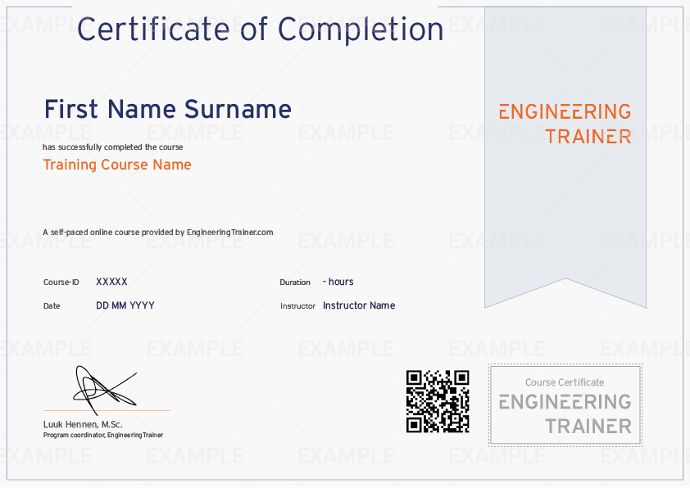
FAQ
This course consists of instructor-led live sessions which consist of presentations, demonstrations and discussions of questions. During each live session participants can ask questions to the instructor (through chat or microphone) which will be answered.
Please note that for privacy reasons no recordings of the live sessions are made or provided.
The training material used in the live sessions, for example the slides or exercises, will be available in the EngineeringTrainer portal for a year after the date of the training allowing you to refresh your knowledge or review material if needed.
No, course content is not available for download.
The training material used in the sessions, for example the slides or exercises, will be available in the EngineeringTrainer portal for a year after the date of the training allowing you to refresh your knowledge or review material if needed.
Please note that for privacy reasons no recordings of the live sessions are made or provided.
Yes, interactive Q&A sessions are part of the live sessions in this course and allow you to interact with the instructor and ask questions.
To respect the privacy of the participants the live sessions will not be recorded, and as such the live sessions cannot be played back. Therefore it is important for all participants to block the time slots of the live sessions in their calendars and be present.
No software licenses are provided as part of this course.
Yes, this course qualifies for PDH hours as per the NCEES CPC Guidelines.
